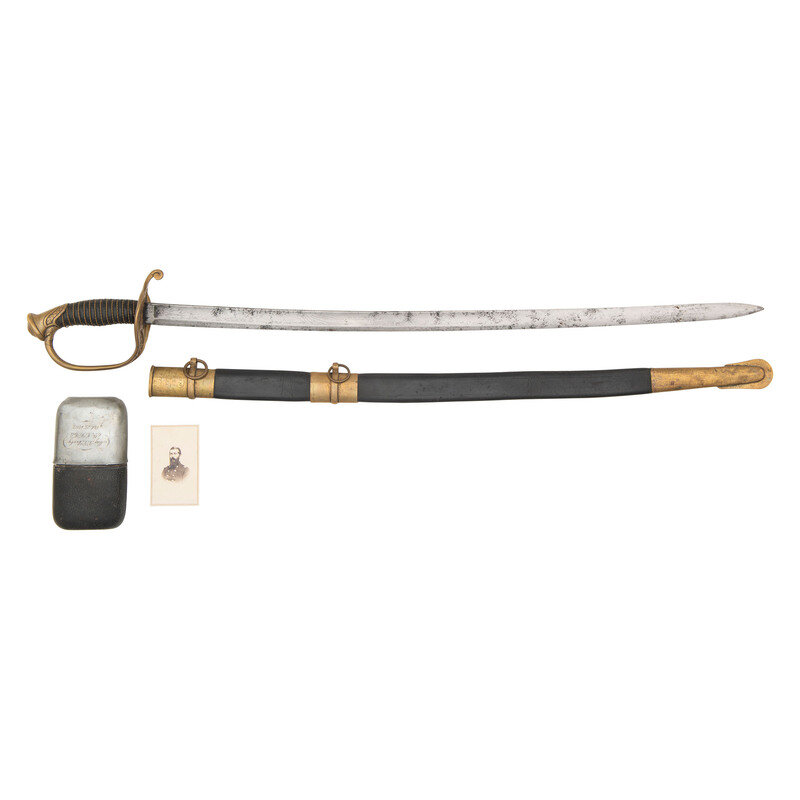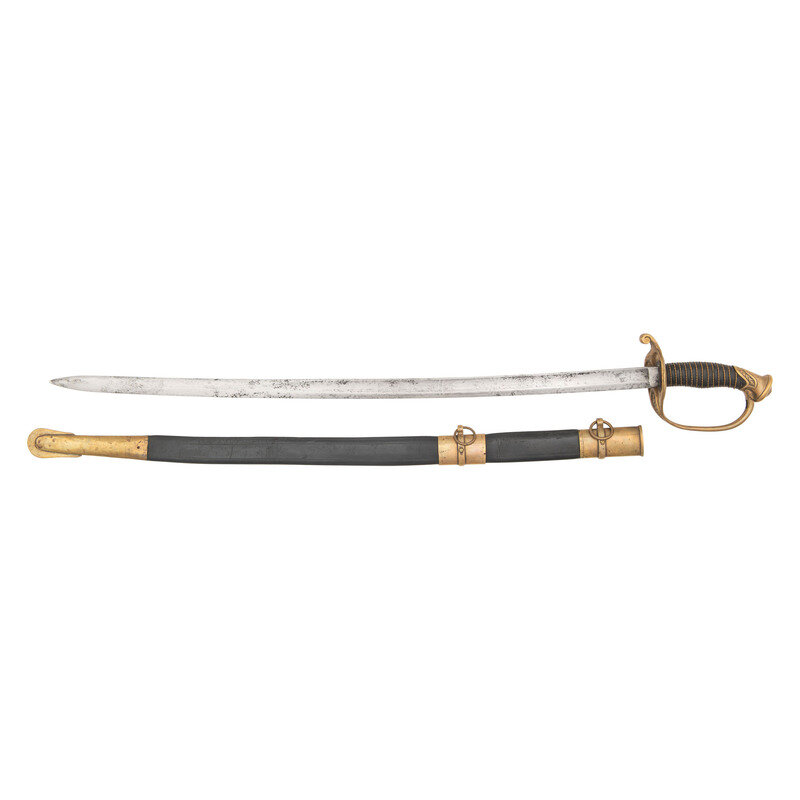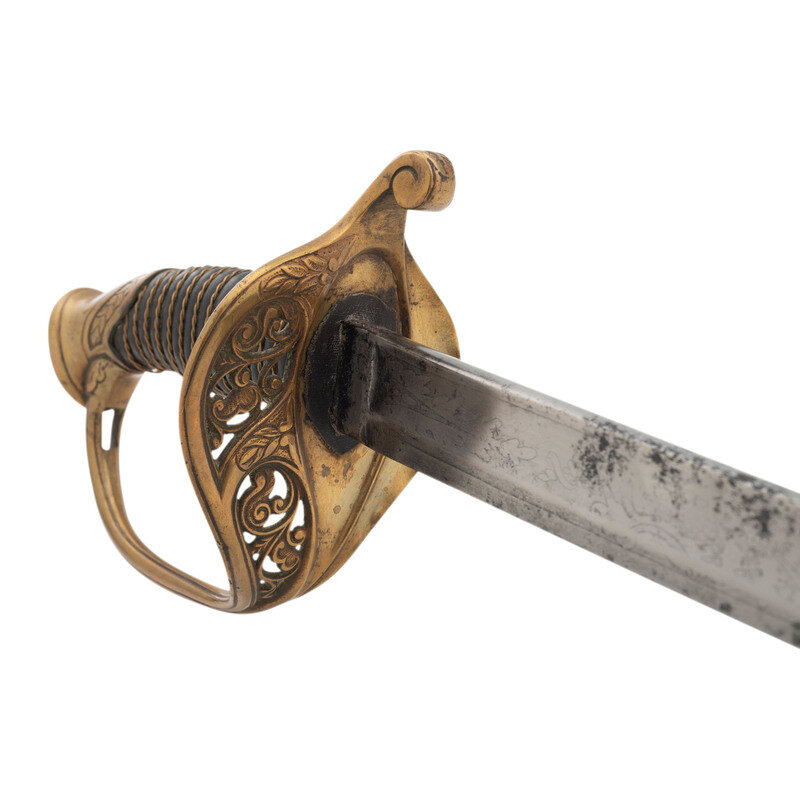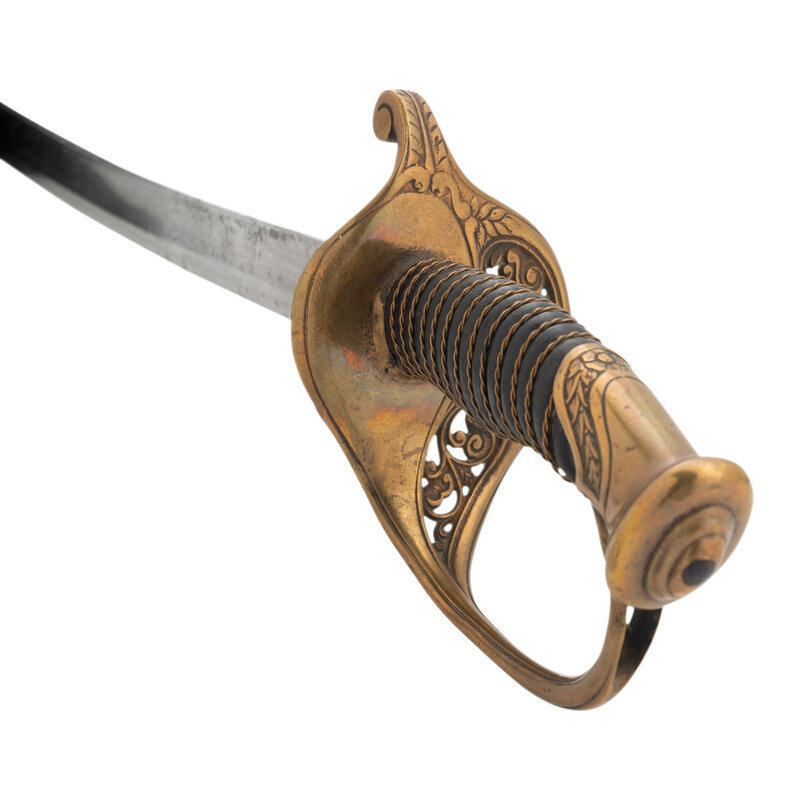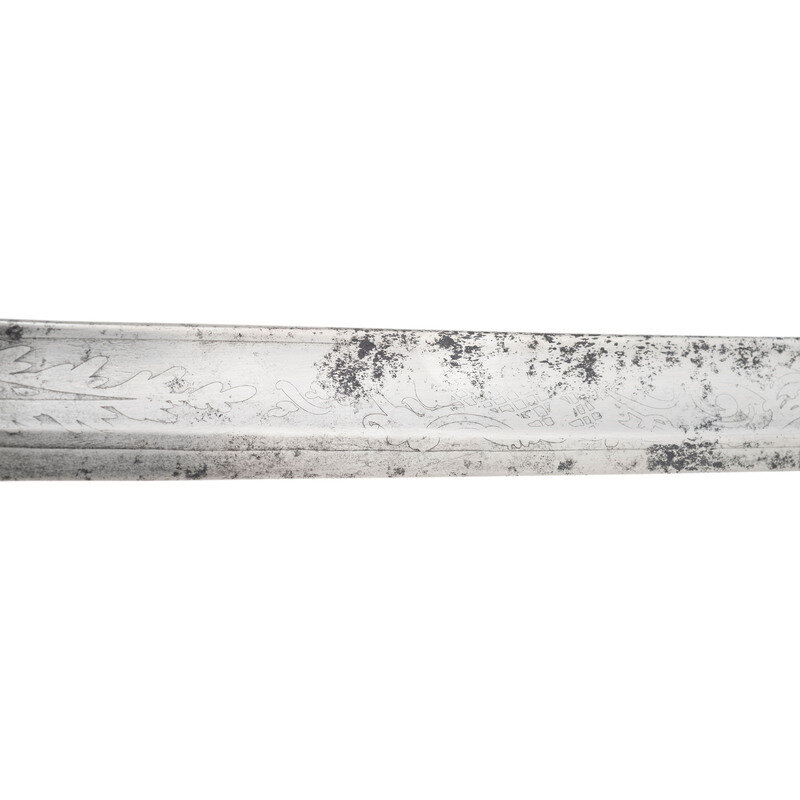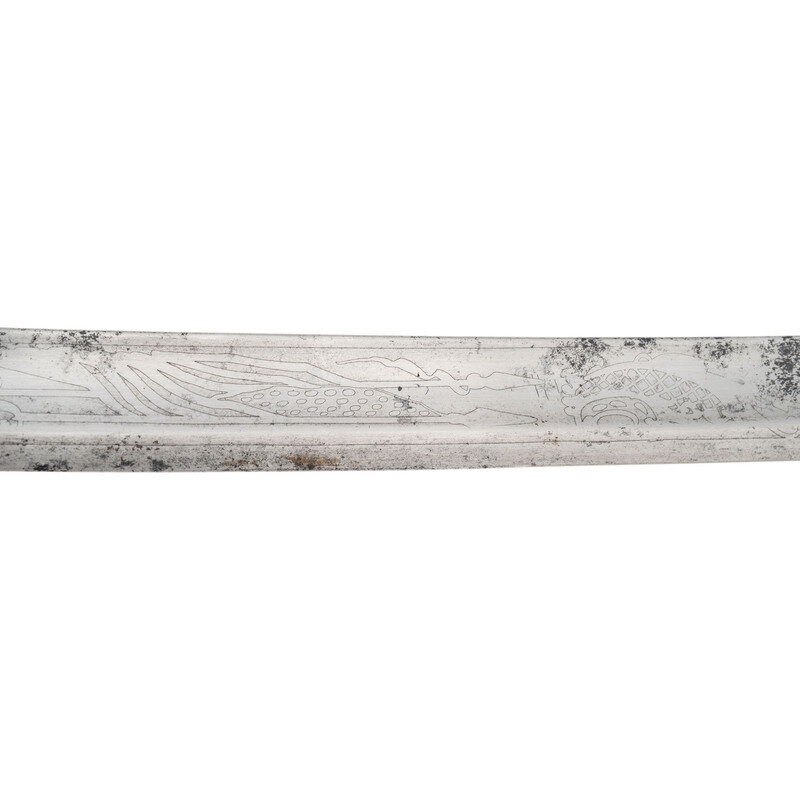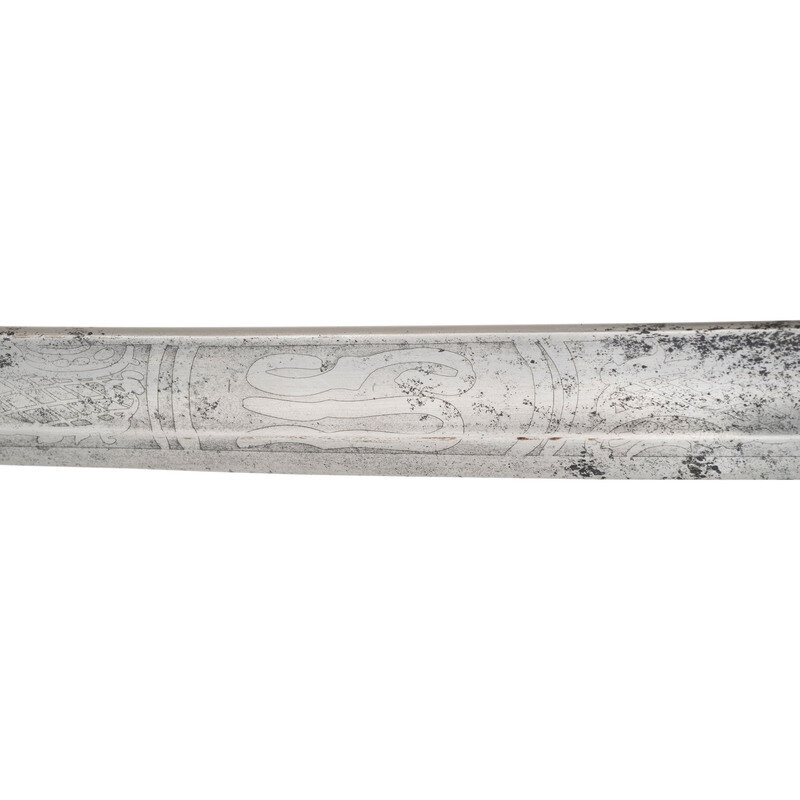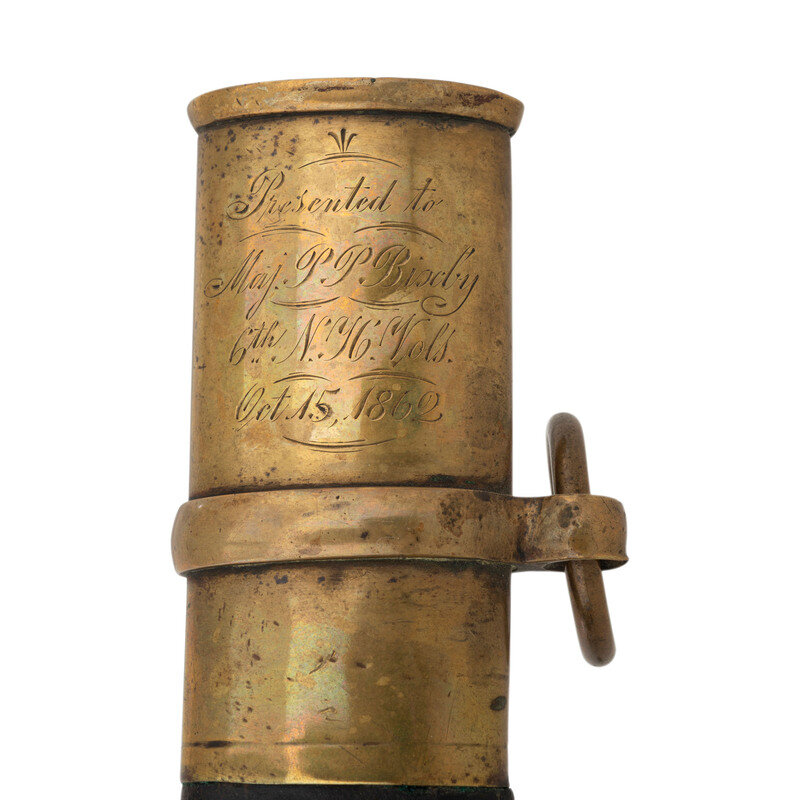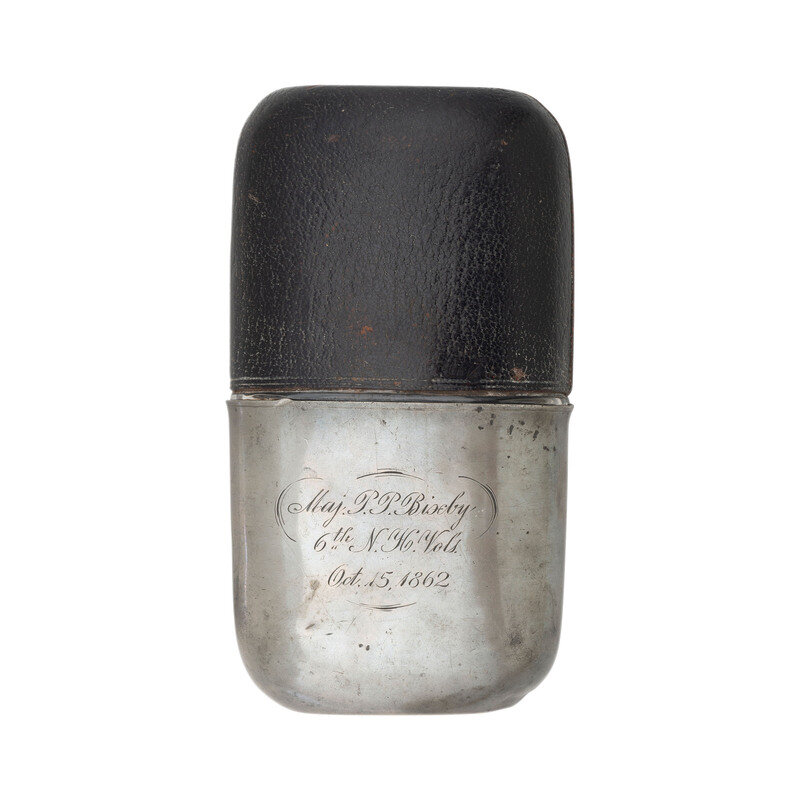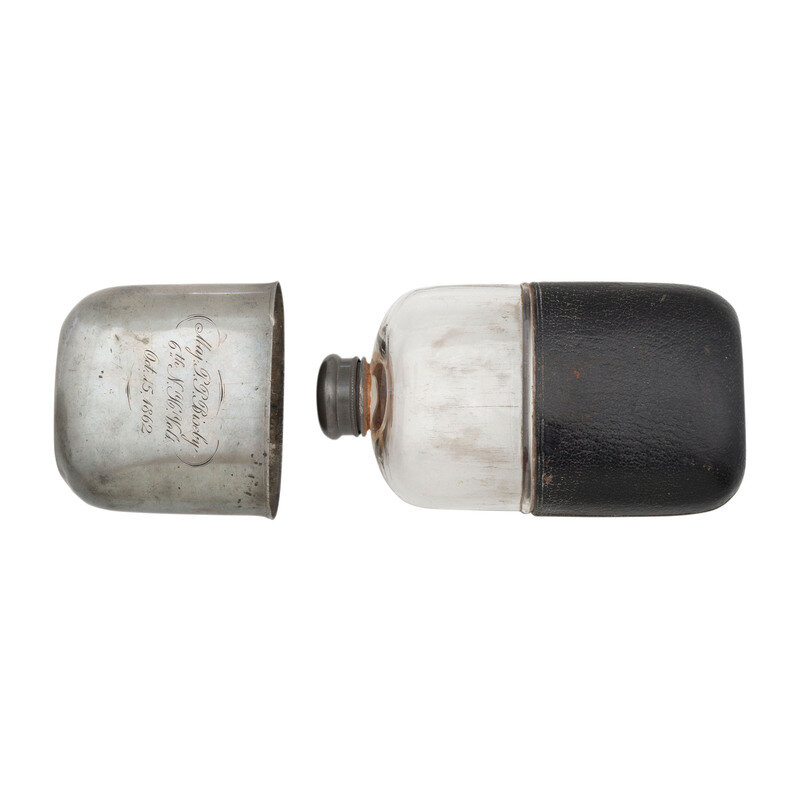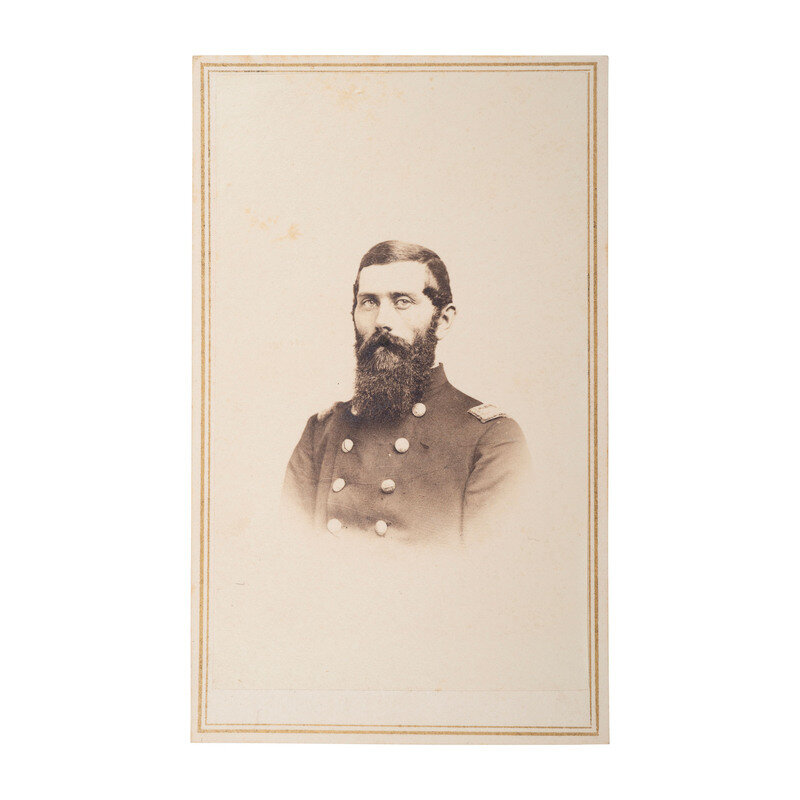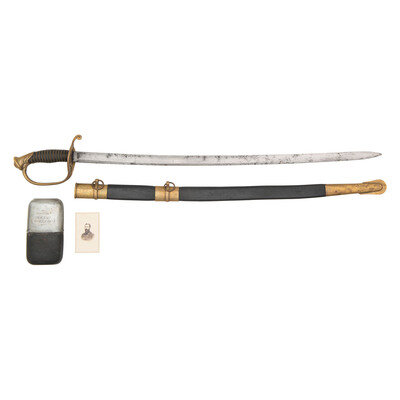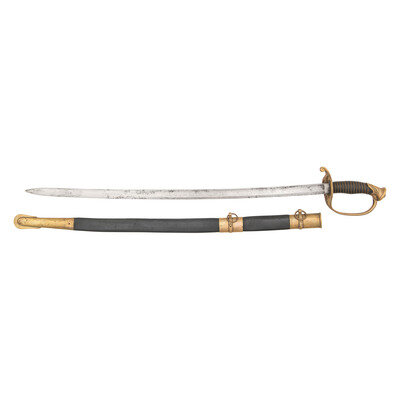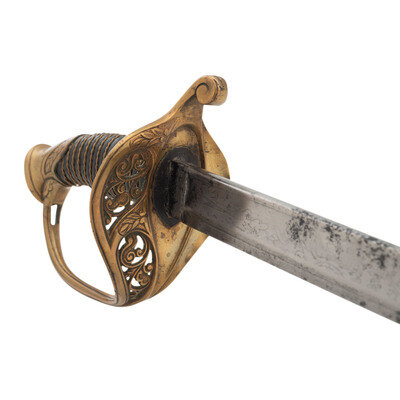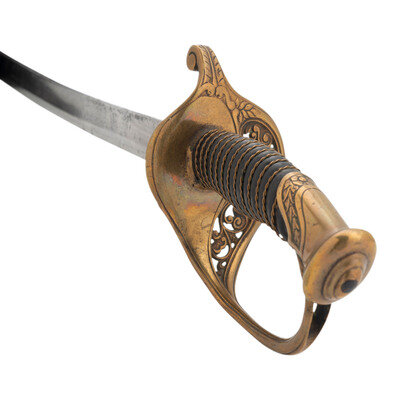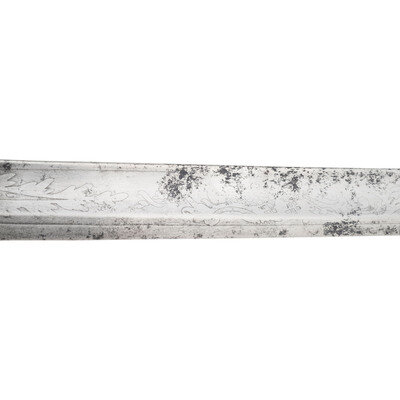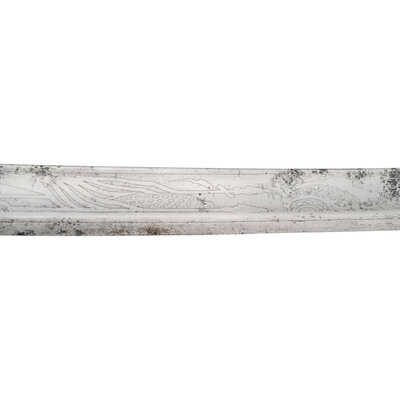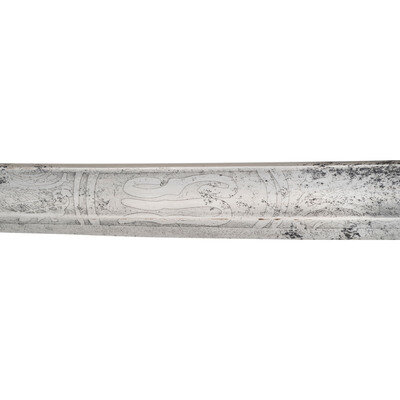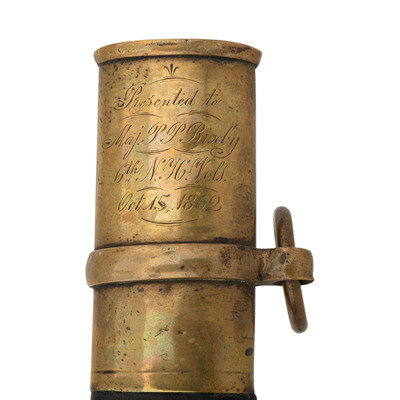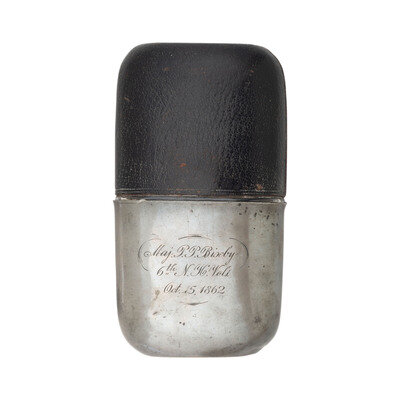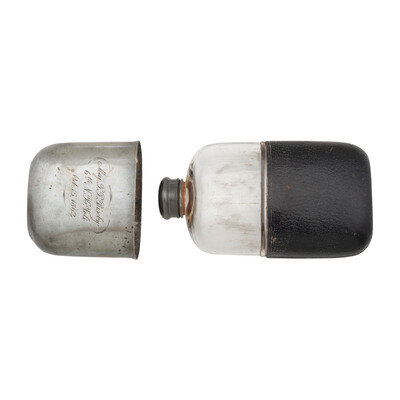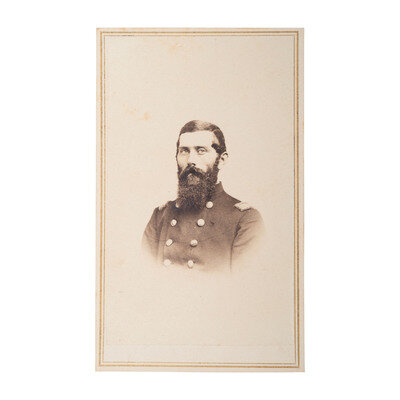Lot 33
Model 1850 Foot Officer's Sword of Major (Colonel) P.P. Bixby - 6th NH Volunteers - POW and WIA at Petersburg, with Engraved Flask and CDV
Sale 1353 - Arms, Armor and Militaria
May 1, 2024
10:00AM ET
Live / Cincinnati
Own a similar item?
Estimate
$3,000 -
5,000
Price Realized
$2,400
Sold prices are inclusive of Buyer’s Premium
Lot Description
Model 1850 Foot Officer's Sword of Major (Colonel) P.P. Bixby - 6th NH Volunteers - POW and WIA at Petersburg, with Engraved Flask and CDV
American Civil War
30.5" slightly curved single-edged spear point blade with 18.5" stopped median fuller, blade 1.1" wide at ricasso. Overall length 36.5" with a 6" hilt, a cast brass guard and a grooved wooden covered in leather with fourteen wraps of twisted wire. Blade unmarked as to maker or retailer, with simple etched decorations featuring flowing foliate motifs on both sides with a large US in the center of the reverse and a patriotic panoply of arms on the obverse. The sword is accompanied by its top-seamed leather scabbard with brass mounts. The upper mount is engraved on its face: Presented to/Maj. P.P. Bixby/6th N.H. Vols./Oct. 15, 1862. The sword is accompanied by a leather covered glass flask with pewter cop that is engraved with the same presentation as on the scabbard mount and in the same hand. A flask inscribed to Bixby as well as a CDV of him are also included, along with a large binder of research about him.
Phineas P. Bixby (1829-1877) was a New Hampshire tradesman from Concord when he was commissioned a 1st Lieutenant and joined the staff & field of the 6th New Hampshire Volunteer Infantry as its adjutant. Bixby was captured as 2nd Manassas on August 29, 1862 and confined at Libby Prison in Richmond until he was exchanged in early October, allowing him to miss the battles of South Mountain and Antietam where the regiment was engaged. He returned to his regiment and was almost immediately promoted to major. The regiment ended 1862 fighting at Fredericksburg. The 6th started 1863 with the infamous Mud March and was then transferred to the Western Theater where they participated in the Siege of Vicksburg and later Jackson, MS. They spent the last part of 1863 in operations in and around Cincinnati, OH and Covington, KY. In January of 1864 they moved to operations in and around Knoxville, TN and then returned to the Army of the Potomac where they fought at The Wilderness and Spotsylvania Court House. From there the continued in the Overland Campaign, fighting at Cold Harbor and then on to the Siege of Petersburg, where they were engaged during the first assault and at The Crater.
Bixby was wounded twice before Petersburg, once on June 16 during the initial assault and again on July 15. The second time the wound kept him out of action until he returned to the regiment on November 1, allowing him to miss the action at The Crater. Shortly after his second wounding Bixby was promoted to lieutenant colonel on July 28 and on February 21, 1865 was promoted to full colonel. He commanded the regiment during most of 1864 and into 1865 and also served as the brigade commander during the last part of the war. Bixby was discharged on July 17, 1865. The inscription on the scabbard commemorates the date that Bixby was promoted to major.
Phineas P. Bixby (1829-1877) was a New Hampshire tradesman from Concord when he was commissioned a 1st Lieutenant and joined the staff & field of the 6th New Hampshire Volunteer Infantry as its adjutant. Bixby was captured as 2nd Manassas on August 29, 1862 and confined at Libby Prison in Richmond until he was exchanged in early October, allowing him to miss the battles of South Mountain and Antietam where the regiment was engaged. He returned to his regiment and was almost immediately promoted to major. The regiment ended 1862 fighting at Fredericksburg. The 6th started 1863 with the infamous Mud March and was then transferred to the Western Theater where they participated in the Siege of Vicksburg and later Jackson, MS. They spent the last part of 1863 in operations in and around Cincinnati, OH and Covington, KY. In January of 1864 they moved to operations in and around Knoxville, TN and then returned to the Army of the Potomac where they fought at The Wilderness and Spotsylvania Court House. From there the continued in the Overland Campaign, fighting at Cold Harbor and then on to the Siege of Petersburg, where they were engaged during the first assault and at The Crater.
Bixby was wounded twice before Petersburg, once on June 16 during the initial assault and again on July 15. The second time the wound kept him out of action until he returned to the regiment on November 1, allowing him to miss the action at The Crater. Shortly after his second wounding Bixby was promoted to lieutenant colonel on July 28 and on February 21, 1865 was promoted to full colonel. He commanded the regiment during most of 1864 and into 1865 and also served as the brigade commander during the last part of the war. Bixby was discharged on July 17, 1865. The inscription on the scabbard commemorates the date that Bixby was promoted to major.
This lot is located in Cincinnati.
From the Collection of George Oldenbourg
Condition Report
Contact Information
Auction Specialists
